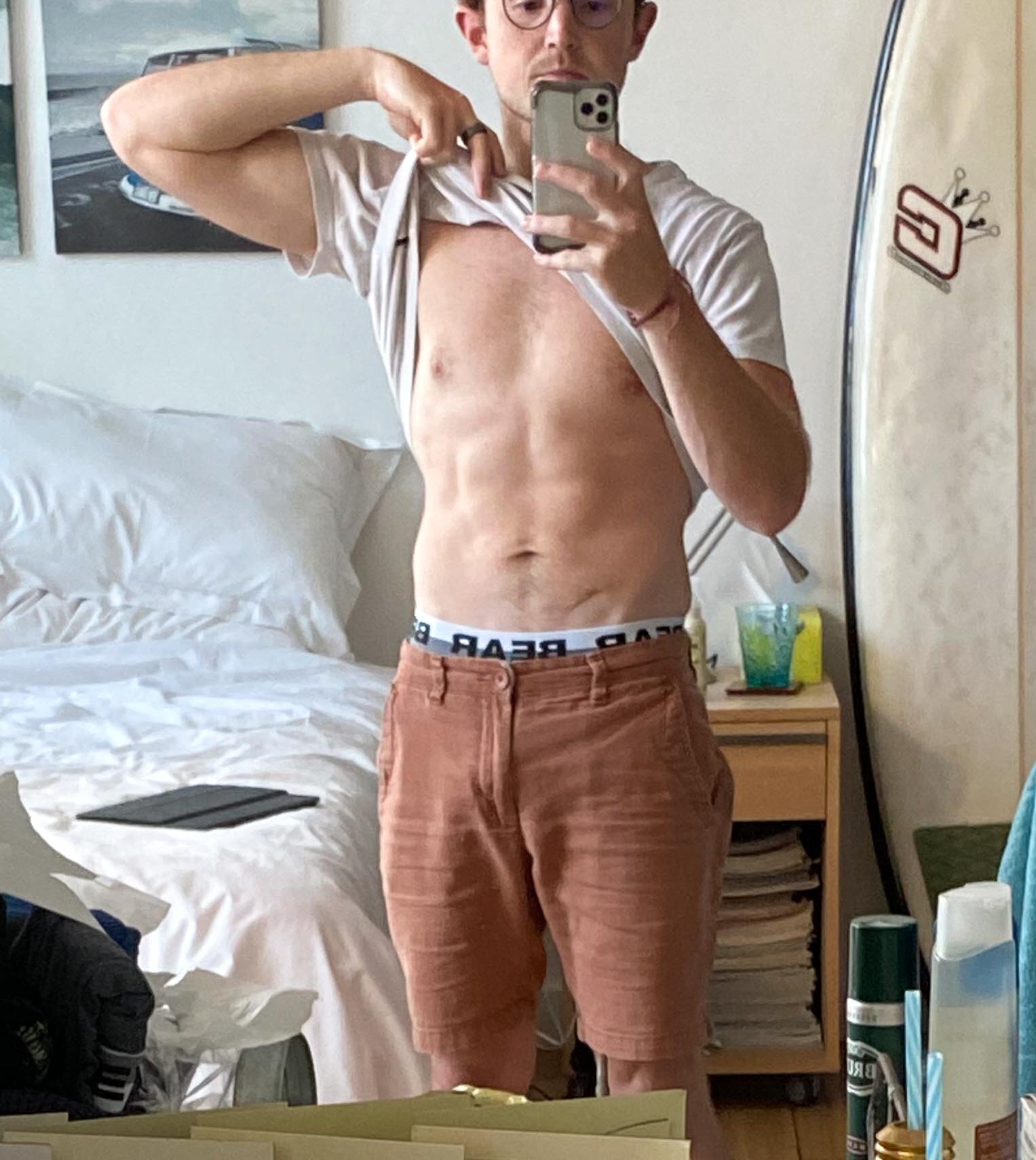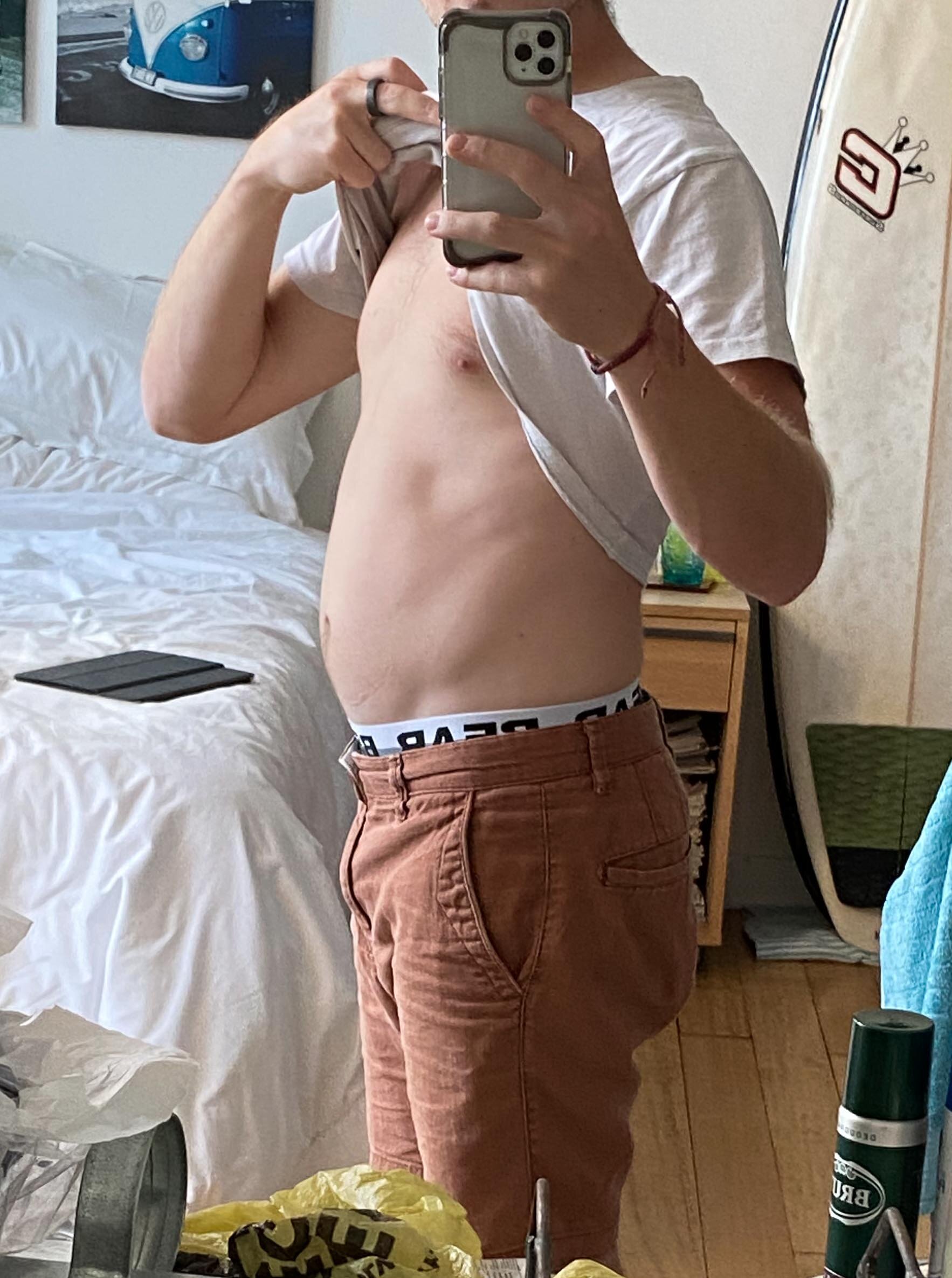I Haven't Eaten A Plant In 9-weeks (Keto-carnivore Diet update)
“If you do not take risks for your opinion, you are nothing.
”
I’ve recently been obsessed with Nassim Taleb’s Skin in the Game (kudos to Naval Ravikant for that via his podcast/tweetstorm).
This is not a book review, but it would help to give context. The only way I could truly write about my experience with going meat-based / keto-carnivore over the past 8-weeks was to actually dive right in. To have “Skin in the game.”
It sounds impassive, but COVID-19 couldn’t have come at a better time. It has given me an opportunity to focus on eating good quality meat without external social distractions (there are ways to eat keto-carnivore while being socially active, which I will write about, but it just makes things far trickier).
The “Risk"
The way I view the “risk” that Nassim Taleb writes about is divergent to his political/socio-economic examples (Google the Bob Rubin trade). To my individual situation, the “risk” is not knowing where I metabolically stand. I do not know what is happening at a biological level — which isn’t exactly a bad thing as blood results are snapshots in time. Unless you have a shit-ton of extra money available and are not squeamish for needles, you’ll have to draw blood consistently — every week or so — to paint a picture.
Even the scale. The scale can be your worst fucking enemy when trying to conduct healthy habits. Chances are your weight will fluctuate more rapidly than the XRP. What gets measured, doesn’t get managed — it becomes compulsive.
9-week Update
I not-so-deliberately left out a few details in my last 6-week update on going meat-based — of which, I will address.
Weight-gain and SIBO ADVENTURES
Prior to going keto-carnivore, my weight was not budging on the scale. And, while to most people that seems like a good thing, in my case, it was not.
*throws off shirt in anticipation for the next line*
I love CrossFit. In order to do CrossFit semi-decently, you need some weight on you.
While this is beyond the scope of this post (which I will get into sometime), I was eating all the carbs. In doing so, I went against my intuition (something I do not recommend if you seek peace from mind).
For the first time in my life, I was struggling to put on weight. It seemed that the more carbs I shoved in my mouth, the weaker, slower and skinnier I got.
Months back I went for a stool analysis (my poop was sent to Europe for testing) and it came back showing signs of Small Intestinal Bacteria Overgrowth (SIBO).
I had too much “good” bacteria in my colon (likely from stress and bad eating habits) that was ’stealing’ nutrients from my body. So the more carbs I ate (bacteria love carbs), the more I was ‘feeding’ the bacteria, the more nutritionally depleted I got.
This is mostly speculation as stool testing is not completely accurate, but it’s highly probable as I went for every other test under the sun to figure out what was happening with me — including a CT scan worth R13 000 which was paid for by Discovery Health (which I will write about, too) to show me that I have a calcium score of 0. My arteries are clean.
Body composition
Unfortunately I don’t have “before” photos as I tend to conduct these experiments on the fly. However, you’ll have to believe me when I say that my body composition has never been better.
Or rather: it’s never been easier to maintain a steady fat-loss state. I like how Mark “Smelly” Bell puts it: It’s nice knowing you’re moments away from being lean.*
*to reiterate: I’m doing this experiment, not because I want to look good, but because I want to feel good, have energy, focus and vitality.
I cheated
I have “cheated” once or twice on the diet by ordering pork spare ribs a few times and Roccomama’s (local South African fast food chain) burger patties with cheese. There was basting on the ribs, which more than likely contained ingredients comprising of MSG and everything in-between — definitely no-no on keto-carnivore (or any human-like diet for that matter).
However, I like to keep in mind, as Stan Efferding would say, the science is in the compliance. If having one or two items that are not keto-carnivore on your diet means you sticking to it, do it.
For myself that includes:
coffee
occasional burger patty haul from Rocco’s
MCT/C8 Oil (that goes into my keto/bulletproof coffee)
Bowl-update
My bowls are better, but not perfect.
Even before venturing into keto-carnivore, I’ve been experiencing chronic constipation over the past few months.
Most people think that constipation is due to lack of fiber in the diet — however, this may not be true.
Watch this video for more.
I presume the supplements I’m taking which are mentioned below have helped.
Drug-like Focus
My focus is becoming laser-sharp.
This could be a combo of quitting social media while COVID-19 does it’s rounds, caffeine, and keto-carnivore, all converging into one drug-like state that keeps me energised and focused.
What Supplements I’m taking
I’m currently taking two supplements during this experiment:
Magnesium citrate/glycinate for sleep/digestion and a topical spray for muscle relaxation
Betaine HCL (with pepsin) for stomach acid support
(if you want to know what brands, shoot me an email hello@joshsnyman.com)
What are the Negatives?
This 9-week plunge has not been all smooth sailing.
At least not compared to the thousands of stories I’ve read about people feeling euphoric on keto-carnivore.
I could possibly attribute this to a number of things that extend beyond the scope of this blog post. But being a leaner semi-athletic person and being caught in the middle of COVID-19 are the two likely causes. It’s easier to lose fat than build muslce to explain the former. The latter…well, yeah, it’s a virus that has taken the world by the ball sack.
A list of Negatives (which are to be expected when transitioning to keto-carnivore):
The high fat content causes daily Gastro Intestinal Reflux Disorder (GERD) symptoms for me. Supplementing with Betaine HCL (with pepsin) has mitigated much of the discomfort.
Family dinners: I can’t share the ‘enjoyment’ and plethora of plants during dinner with my family. I sometimes crave weird shit like roast butternut. Times like these I remind myself of my “why” and I march onwards.
Sleep is not for the weak — it’s for the strong. Unfortunately, my sleep has been all over the place (once again, to be expected when making extreme dietary changes). I track my sleep using the Oura Ring. My sleep is slowly improving. Will be interesting to see during the next update.
Could this be a long-term solution?
One day in the distant future, I will have a treat every now and again, but it hasn’t even crossed my mind too much.
In fact, it’s made something even more clear in my head: food is fuel. Humans have turned food into entertainment. Whatever pleasurable piece of food you place in your mouth in an attempt to give your tastebuds a dancing sensation of delight is a fleeting experience. It’s momentary. Think about it. If you’re like me, when you finish an ice cream, all that transpires after the fact is the craving for more. And since you can’t live off ice cream, it’s a feedback loop that plays over.
I’m 9-weeks in, and I have been told it can take up to 90 days to fully adapt. So I may as well stick it through the next few weeks. ‘May as well’ as in at various times I’ve been certain I’m going to die.
What’s Your Why?
I’m viewing this more as a spiritual exercise than anything. I’m breaking the comfort I seek in food when the times are rough. My entire life I’ve resorted to food as a distraction from a bigger issue.
Taking a risk for your opinion is scary. Especially when there is very little evidence to support your claims.
This experiment is far bigger than food. It’s breaking the addictions I’ve held captive for so long. It’s no longer associating food with comfort. It’s disciplined my soul into appreciating the other things in life I took for granted.
I look forward to writing the next update.
How do you view food? Is it fuel or entertainment?
What’s your why?
See you in the comments.
Josh - Kenilworth, Cape Town.


The conversation features Patrick Belem—a filmmaker, musician, and spiritual seeker—who offers an authentic perspective on plant medicine. Patrick co-directed the film 'Eskawata Kayawai,' which explores the culture and traditions of the Huni Kuin people in Brazil. The discussion touches on the film's depiction of the revival of the Huni Kuin culture, the intricacies of ayahuasca ceremonies, and the importance of honoring indigenous practices. Patrick shares his journey into spirituality influenced by his upbringing in a culturally diverse Brazilian family and his transformative experiences with ayahuasca. The conversation also covers the need for proper context and respect when engaging with plant medicine and the potential pitfalls of cultural appropriation. The episode ends with reflections on the integration of plant medicine experiences into daily life and Patrick’s insights into his personal and artistic growth.